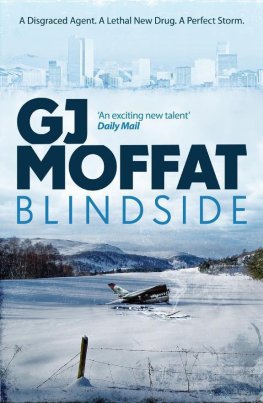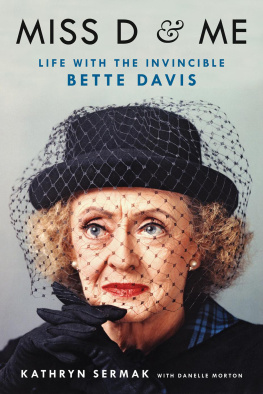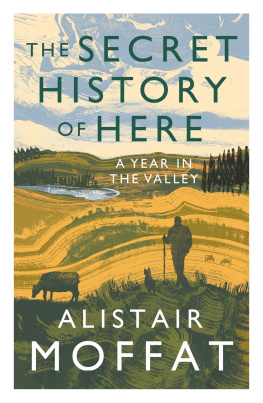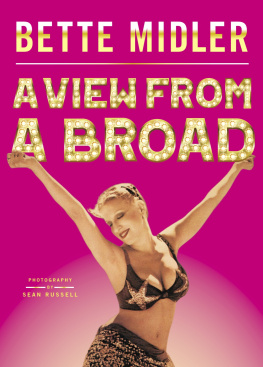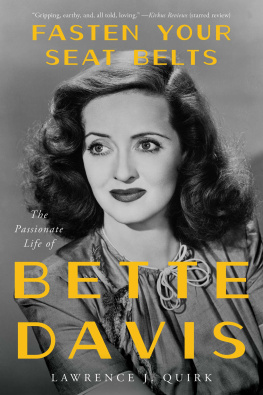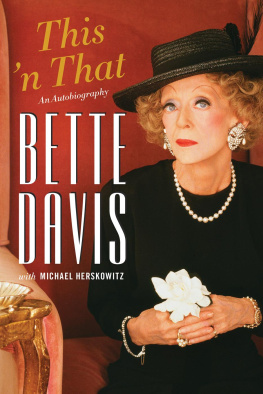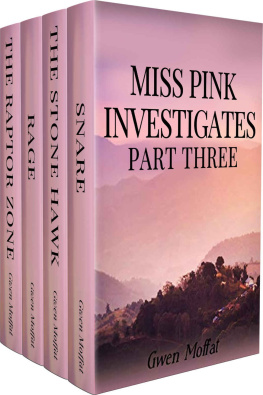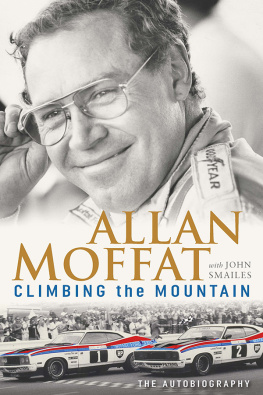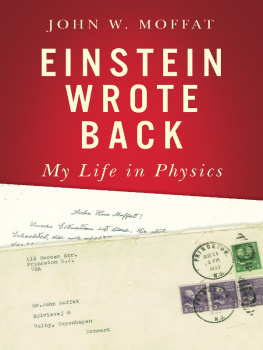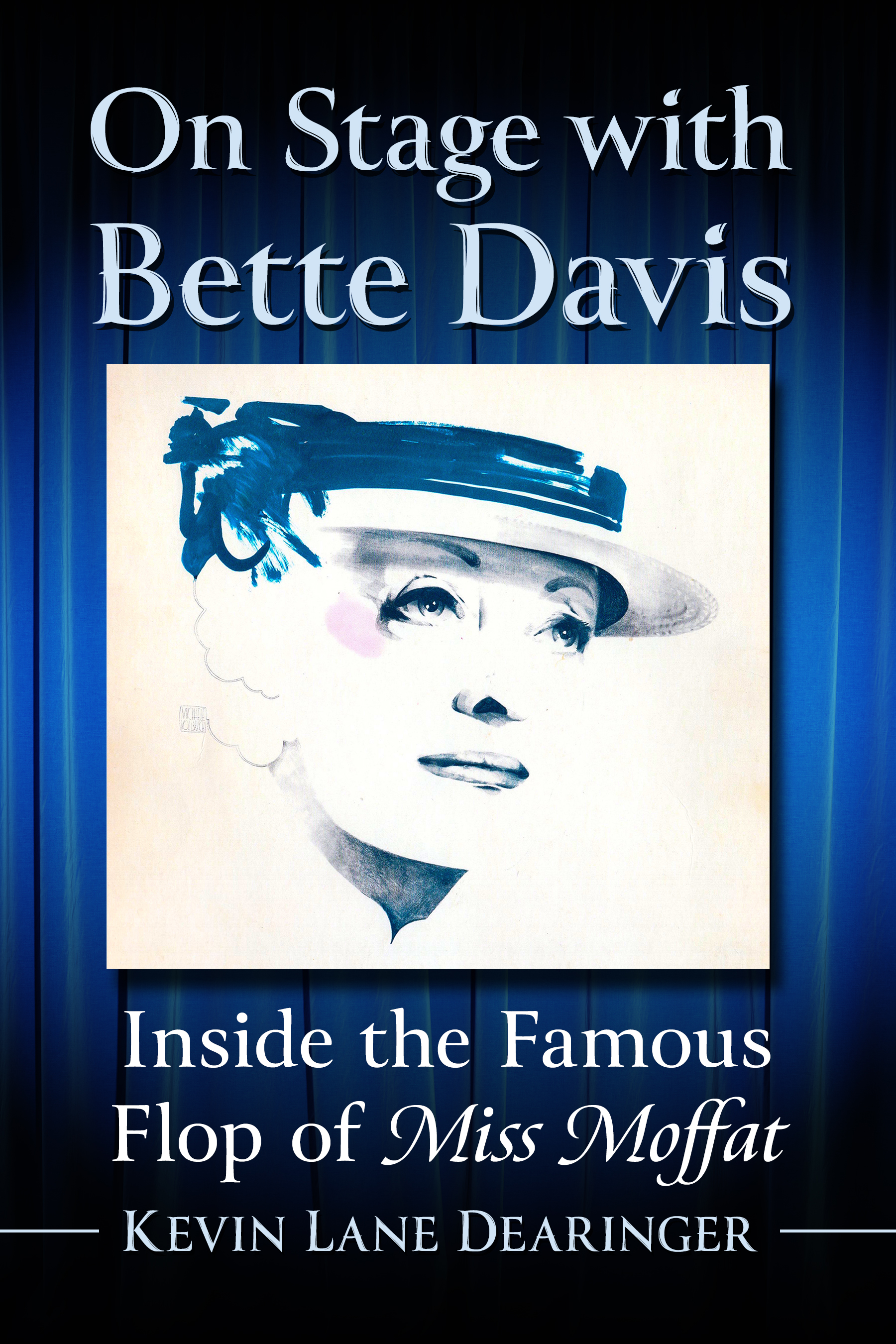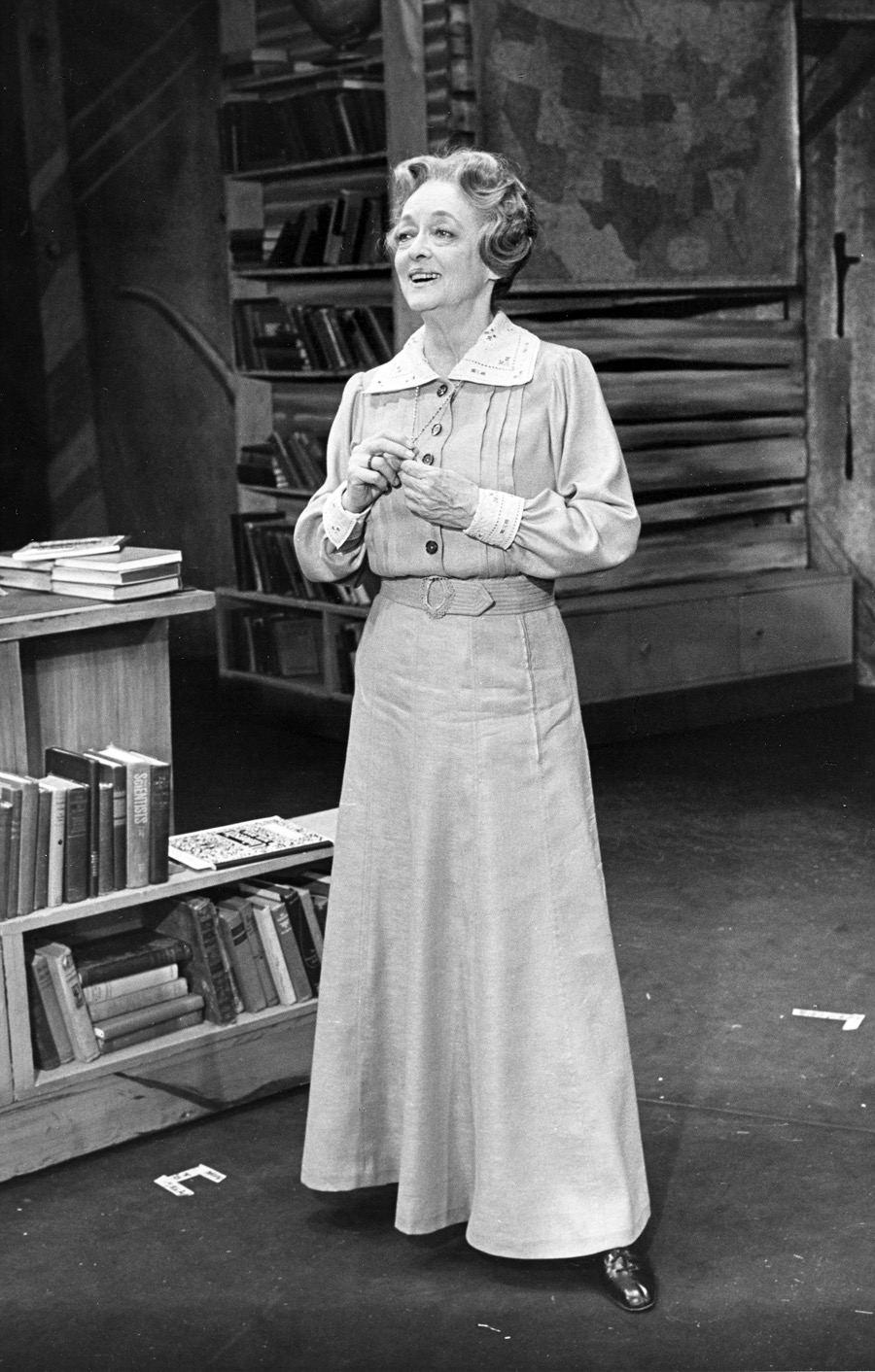Bette Davis as Miss Moffat (photograph by Friedman-Ables The New York Public Library for the Performing Arts).
The Bard in the Bluegrass: Two Centuries of Shakespearean Performance in Lexington, Kentucky (McFarland, 2007)
Dialogue and lyrics from the plays quoted by the kind permission of the copyright agent: Alan Brodie Representation Ltd, www.alanbrodie.com.
Unless otherwise noted, all photographs are by Friedman-Ables The New York Public Library for the Performing Arts.
2022 Kevin Lane Dearinger. All rights reserved
No part of this book may be reproduced or transmitted in any form or by any means, electronic or mechanical, including photocopying or recording, or by any information storage and retrieval system, without permission in writing from the publisher.
Front cover: Bette Davis as Miss Moffat, poster portrait by Michael J. Vollbracht, with permission of the Michael J. Vollbracht Estate, Tracy L. Moore, representative.
For Lee Goodman, Martin Herzer, Wallace Briggs, and Mr. Ken Billington
Acknowledgments
The author wishes to thank his biological and theatrical families for their support and for listening to some of these stories for five decades. If age and stage fright have made him seem cranky, he remains grateful for all the love, here and there, then and now.
With a lifetime of gratitude to John Arthur and Anna Louise Lane Dearinger, Pam Dearinger Hutton, David Bernard Dearinger and Darrell Ung, Arnetta Winkfield Hill, Anne Rogers and Mike Hall, F. Kathleen Foley Herder, Celia Tackaberry, Ken Billington, Maria Blazer and Judith Blazer Kaufman, Shirley Brown Pierce, Andy Sandberg, and always Danny Mizell.
Thanks, too, to Linda Lane Haynes, Alan Gooch, Gail Kennedy, Jimmy Brown, Anthony Smallwood, Maureen Linehan, Christine Bramble, Gerry Protheroe, John Brian Quinn, David Elledge, Lydia and June Ooghe, Bobby Wilson and Andy Gale, Christopher Molanphy and his families, all the Hals family, Kathleen Hebert, John Kirby, Jamie Dee Howe Nichols, Sue Dearinger Howell, Loralie Dearinger Howe, Ruth Ann Dearinger Snyder, Christine Lane McDonald, Minnie Lane Nelson, Mary Baker Flynn, Donna Gardt, Jim Jansen, Mark Sendroff, Jack Feldman, the incomparable John Fricke, Harry Woolever, Jacqueline Roberts, Felix Knight, Marge Rivingston, Toni Hoffman Scofield, Andy Greenhouse and Frank Guliani, Michael Newton-Brown, Ron Plotkin, Robert Smallwood, Russell Jackson, Stephen Gill, Dorothy Bednorowska, Uli Knoepfelmacher, Gay Reading and John Martin, Jerry Stone and Mary OBrien, Cody and Cameron Taylor, who know their theatre history, Jeromy and Lyndy Franklin Smith and the Lexington Theatre Company, especially Brock Terry and the full companies of West Side Story and Newsies , the jolly crew at Cornerstone Pharmacy and the Two Sisters Caf, and all my former students and student-actors, who allowed me to tell my stories when the mood was on me.
With additional thanks to Harry Keyishian, Erin Chandler, Michael Courtney at the Black Swan Book Shop, Dr Person and the staff at McFarland for their professional support and encouragement.
With thanks, as well, to Third Street Stuff, Lexington, Kentucky, and to Starbucks, various, in Manhattan and Kentucky, especially my Lexington friends at Ashland and East High, for offering strong black tea with refills and a friendly space to write.
Lyrics and dialogue from Miss Moffat used by permission of the estate of Emlyn Williams, Alan Brodie Representations, Ltd., London. With thanks to Mr. Brodie, Ginny Sennett, Katie Butler, and Alison Lee.
Miss Moffat poster art reproduced by the kind permission of the estate of Michael Vollbracht, Tracy L. Moore, representative.
All rehearsal and production photographs reproduced by permission of the New York Public Library, Billy Rose Theatre Division, the Friedman-Ables Collection.
I am grateful.
Apologia
I was a musical theatre juvenile. I was a tenor. My hair was blond, sort of, and red, sort of.
I was cute. Dreadful word.
I was wholesome. Even worse.
I played virginal young men and sang high notes. Its what I did for a living.
I was in the theat re . Not the theater. My spelling indicated that I was serious about it. I still am.
Like every actor, I have a few stories to tell.
I have told and retold those stories, again and again, trying to get them right.
My stories are about friendships, quick and shallow, fast and deep.
My stories are about life in the theatre and in New York City, as it was, or as it seemed to be, nearly fifty years ago.
When subway fare was thirty-five cents, with a free return on Sundays.
When no one minded sleeping, if necessary, on a friends sofa or, if lucky, paying two hundred a month for a fifth-floor walk-up rental in a Mom-and-Pop neighborhood.
When a few Broadway shows still sold seats in the upper balcony for two dollars.
When five dollars took care of the two-drink minimum, no cover charge, and you could sit in a dark and intimate performance space for an hour with new-found friends and two small glasses of white wine, only a few feet away from the brilliance of Barbara Cook, Helen Gallagher, Chita Rivera, Bernadette Peters, and the Incomparable Hildegarde, a charming lady who accompanied herself on a piano without removing her long white gloves.
When, if you were young, sex offered an efficient way to say hello. And goodbye.
When a mad-eyed autograph hunter in the theatre district regularly stopped anyone with reasonably good dental work with the shouted intrusion, Hey , you in show-business? and you knew not to say that you were, or wanted to be.
When you quickly learned the difference between enthusiasm and insanity.
When meeting an ensemble dancer working in a Bob Fosse hit felt like a brush with royalty.
When you might suddenly hear Hermione Gingold, that glorious eccentric, raising her great trombone of a voice to hail a cab on Eighth Avenue, turning heads from every direction.
When the elusive Greta Garbo still roamed the shops in her East Side neighborhood but always disappeared before anyone could confirm her identity.
When you might be lucky enough to spot the beyond-lovely Gwen Verdon at the corner bodega, picking up the Sunday Times , late on a Saturday night, and walking away on a cloud.
When bodega was an exotic new word to the ears of the newly arrived and using it casually in conversation might suggest you actually belonged in the City. And you learned to say the City.


